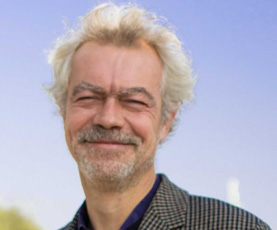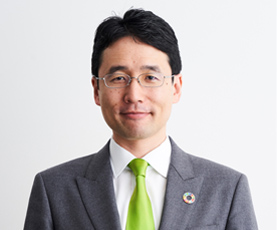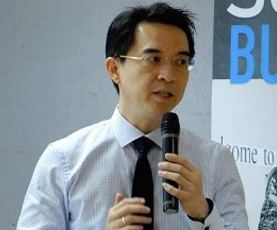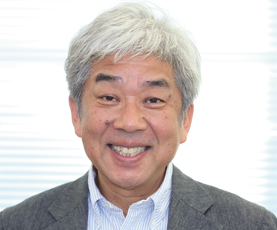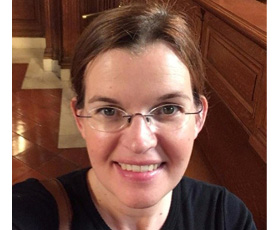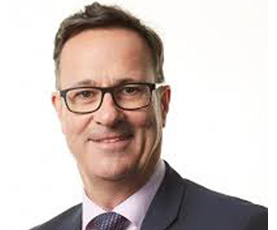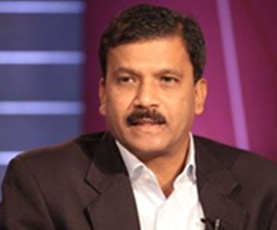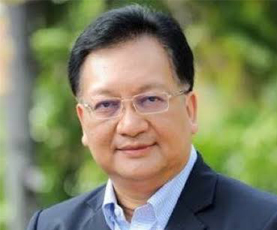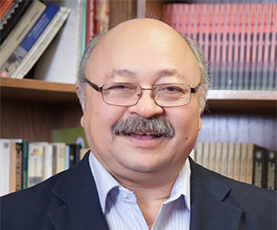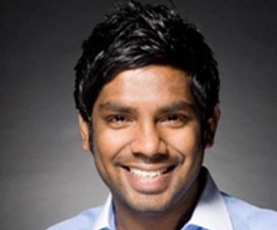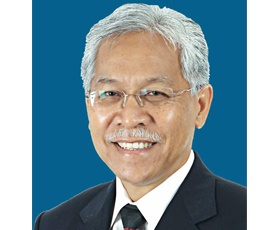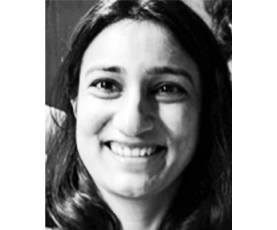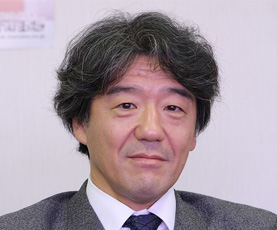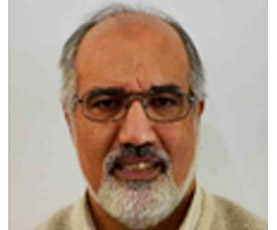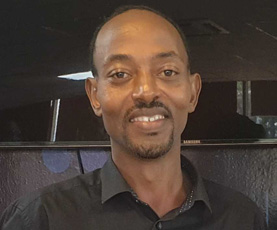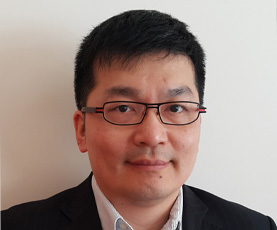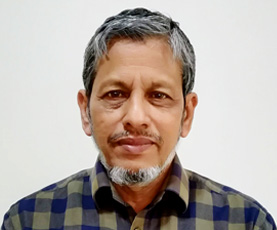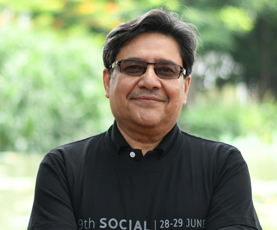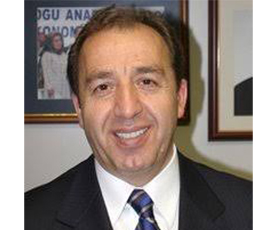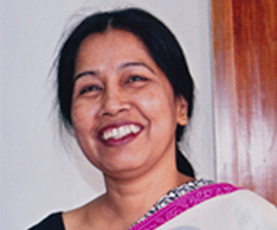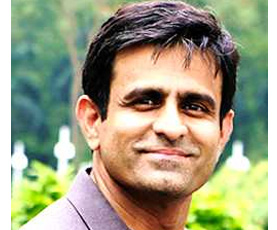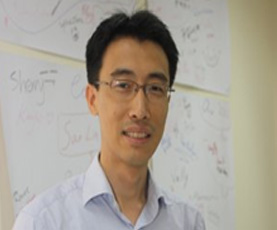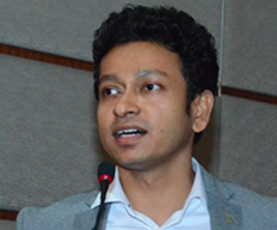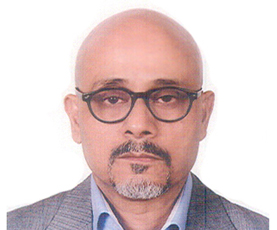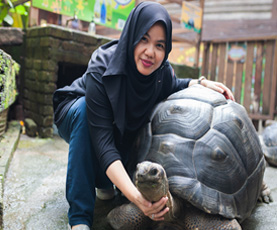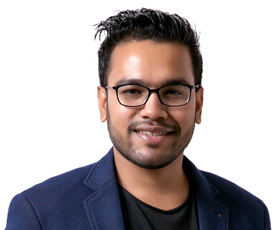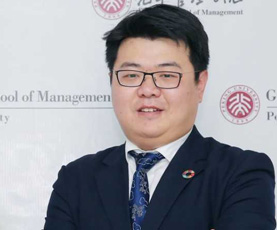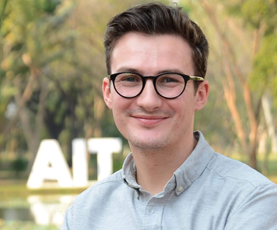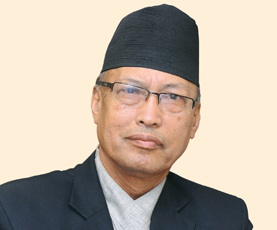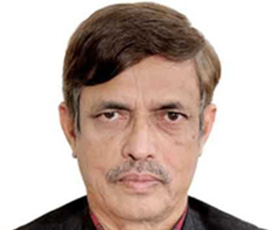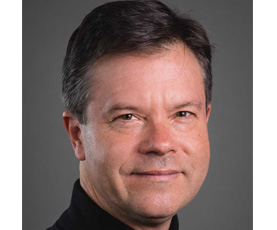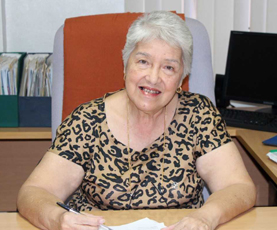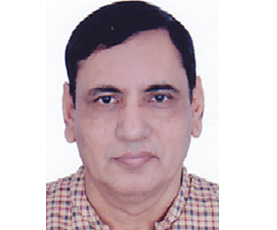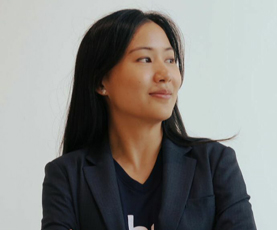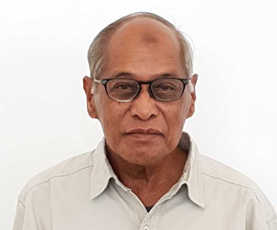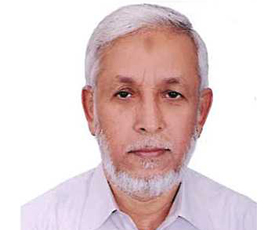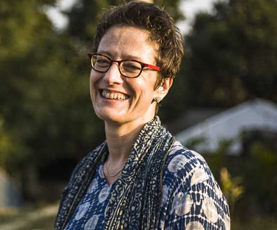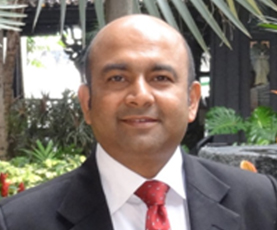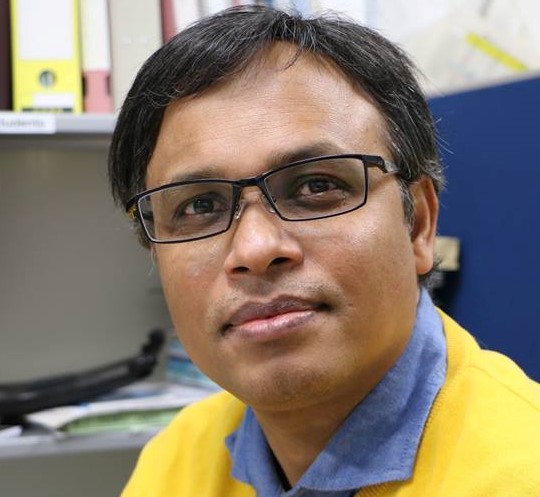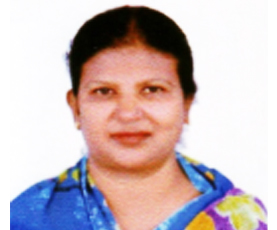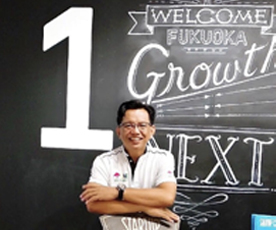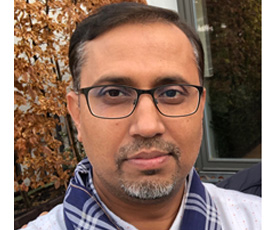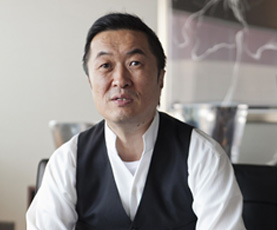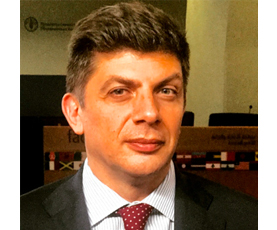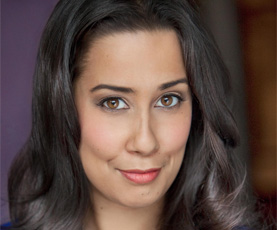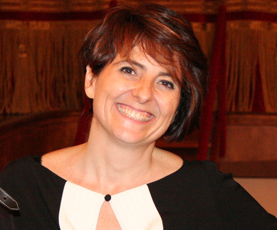Session: Panel 3: Corporates in Social Business: How to get traction, What is Missing?
This panel is designed to discuss the importance of corporate action tanks in social business. It will provide insight on how large corporations can support social projects, adopt social business policies and invest in social businesses through corporate action tanks. Large corporations can make huge contributions in the world of social business. Corporate Action Tanks can act as a springboard for these corporations to engage and work together to address diverse social problems by creating various social business ventures. Corporate action tanks help in making connections and deepening partnerships. It may draw the attention to making the future character of business should be of the form dual business - each profit-maximizing business must create a social business as a parallel business to the world sustainable socially and environmentally.
This will be the concept of corporates. Corporates should be created in pairs, like twins, corporate for profit-maximizing and corporate for social benefit maximizing. CSR is a small beginning. It has to be formalized into a dual corporate system.
Speakers:
Jacques Berger
Action Tank and Social Business at HEC
Seema Bansal
The Boston Consulting Group, New Delhi office
Mitsuru Izumo
euglena Co., Ltd.
Pipat Yodprudtikan
Thaipat Institute
Hiroshi Osaki
Yoshimoto Kogyo Co. Ltd
Marie Soubeiran
Danone Communities
....
The aim of this panel is to discuss how social businesses can bring about changes in access to education. Discussions will cover how institutions can apply the ideologies of social business to create graduates who are capable of solving problems of the future while utilizing the latest and updated technology.
Question: Should education create “job-ready” young people, or “life-ready” young people. What it means to be “life-ready”. Purpose of life. Discover the self. Unearth the limitless creative capacity in each young person.
Throughout the years, success in education has been defined by the narrow terms of attaining good grades and pursuing higher education, ultimately promising a successful career. However, this methodology has converse effects which damage work ethic and restricts a fulfilling and successful career by de-motivating students who fail to meet the thin criteria of academic success.
The speakers of this panel may discuss if the long-standing methods of education are still relevant in solving the problems of the contemporary world and if students are encouraged to become entrepreneurs or chase jobs. Is success in life narrated by academic success?
From “job-oriented” education shifting to “global-life-oriented” education. Making children aware of how people contributed in making the world a better place for future generations. And learn how they can do it themselves.
Speakers:
Cam Donaldson
Glasgow Caledonian University
Md. Nazrul Islam Asif
Dhaka University
Bordin Rassameethes
YSBC Thailand @ Kasetsart University
Alejandro Mungaray-Lagarda
UABC Yunus Centre for Social Business and Wellbeing
Kieran Arasaratnam
Gandhi Centre for Inclusive Innovation
Dato’ Seri Idris Jusoh
Ministry of Education, Malaysia.
....
This panel is designed to discuss the interactions and linkages between agriculture, the environment, and world hunger. Unsustainable agriculture poses as a large-scale threat to the environment and world hunger, and even agriculture itself.
Fertilizers used during crop production are one of the main factors that influence environmental damage, including fluctuations in the earth’s climate brought by increasing atmospheric concentrations of gases such as carbon dioxide (CO2), methane (CH4), and nitrous oxide (N20) and depletion of the stratospheric ozone (03) layer caused by releases of chlorofluorocarbons (CFCs) and other ozone-depleting substances. Machinery used in agriculture for fertilizer production, irrigation, food processing, and storage also consumes a significant amount of energy.
Population is increasing. Climate crisis is reducing cultivable land. Best use of land. Share land for food, and healthy air. Both necessary for life. Each country, each district, each community should do that. We should pay the countries who produce clean excess air.
This session will cover how social businesses can harness sustainable and responsible methods of agriculture and minimize environmental harm and ensure equal distribution of food on a local, regional and global level. In retrospect, only social businesses can be implemented in the agriculture context given the limited scope of anything remotely profit related. Another important matter of discussion for the panel is whether the global food system will be able to adapt to the environmental changes. Examples of social businesses such as Grameen Euglena who are tackling malnutrition and hunger could be a driving force to push the idea of the importance of social business in the agriculture sector.
Speakers:
Aarti Wig
Yunus Social Business India
Eric Campos
Grameen Crédit Agricole Foundation
Yukoh Satake
Grameen Euglena
Aziz Elbehri
Development & Policy Support Group, Food and Agriculture Organization of the United Nations (FAO), Regional Office for Asia and the Pacific, Thailand
Richard T. Tugume
YSB Uganda
Chien-wen Mark Shen
National Central University
Farid Uddin Ahmed
Arannayk Foundation
....
This panel is designed to discuss the importance of corporate action tanks in social business. It will provide insight on how large corporations can support social projects, adopt social business policies and invest in social businesses through corporate action tanks. Large corporations can make huge contributions in the world of social business. Corporate Action Tanks can act as a springboard for these corporations to engage and work together to address diverse social problems by creating various social business ventures. Corporate action tanks help in making connections and deepening partnerships. It may draw the attention to making the future character of business should be of the form dual business - each profit-maximizing business must create a social business as a parallel business to the world sustainable socially and environmentally.
This will be the concept of corporates. Corporates should be created in pairs, like twins, corporate for profit-maximizing and corporate for social benefit maximizing. CSR is a small beginning. It has to be formalized into a dual corporate system.
Speakers:
Jacques Berger
Action Tank and Social Business at HEC
Seema Bansal
The Boston Consulting Group, New Delhi office
Mitsuru Izumo
euglena Co., Ltd.
Pipat Yodprudtikan
Thaipat Institute
Hiroshi Osaki
Yoshimoto Kogyo Co. Ltd
Marie Soubeiran
Danone Communities
....
This panel will focus on how social businesses can be made powerful through application of science and technology. Using innovative approaches to tackle social problems has always been a key objective for social entrepreneurs. Technology and science, which are inherently innovative, will continue to play a significant role in building and improving social businesses.
Technology is a blessing, as well as a curse. Technology can produce massive unemployment through artificial intelligence, creating massive poverty by concentrating in production without human involvements, producing technology like plastic to threaten the existence of the existing eco-system.
Technology for blessing has to get the sole attention. Healthcare, Agriculture, financing the unreached, making the physically and mentally handicapped people self-reliant.
We need to find a way to protect human beings and the planet from the destructive curse of technology. The speakers of this panel will explore the possibilities of the development of socially driven technology in place of developing greed and military driven technology.
Speakers:
Faiz Shah
Asian Institute of Technology
Aziz Akgül
Turkish Grameen Microfinance Program
Nazneen Sultana
Grameen Communications
Narayan Sundararajan
Grameen Intel
Sam Ro
UM-SJTU Joint Institute
Tutan Ahmed
IIT Kharagpur
Sohel Ahmed
Grameen Shakti
....
This panel will discuss the current generation’s entrepreneurial abilities. The youth today are the most powerful of all generations as they are equipped with technology that did not exist before. They are the driving force of the world with their immense potential. They have immeasurable creativity and energy that can be harnessed into innovative business ideas and effective work ethics. With guidance in the right direction, the youth can turn unemployment into entrepreneurship. They start with and stay with their own drive and a unique vision. They use their personal passion to find ways to contribute to the world. There are hundreds of thousands of them finding their way in the new, seemingly barren job wilderness.
Young people today are the most powerful generation in history. They should be made aware of it. They should ask themselves the question: What use do we make this unbelievable power for? Should we make ourselves.
Speakers:
Christian Vanizette
Makesense.org
Nurfarini Daing
Youth Trust Foundation
Shazeeb Khairul Islam
YY Goshti
Alex Wang
Youthink Center in China
Dwiti Vikramaditya
Kalinga Institute of Social Science (KISS)
Callum Mackenzie
Yunus Centre @ AIT
....
This panel will feature global microfinance leaders, who will review the global state of affairs of microfinance as social business. Microfinance provides a path for the poor to grow out of poverty by taking small loans. Microfinance promotes entrepreneurship and empowers both women and men. This session will discuss the importance of refocusing efforts to adhere to the true social mission, which has been well established by Grameen Bank. This session will shed light on the impacts, challenges, and the future of microfinance as social business.
Wide range of service to be provided by microfinance organizations, Insurance, pension fund, Savings, housing, education equity, venture capital, loan guarantee and every other service that is available to the rich. Legislation for creating Bank for the Poor as a social business. Building strong community of social business microfinance. Technology, entrepreneurship for the unemployed.
Speakers:
Shankar Man Shrestha
Centre for Self-Help Department
Zahirul Alam
Integrated Development Foundation
Alex Counts
Grameen Foundation
Corazon Henares
Negros Women for Tomorrow
Ratan Kumar Nag
Grameen Shakti Samajik Byabosha Ltd.
Thisana Thitisakdiskul
Noburo
Sukor Kasim
Albukhary International University
....
Social businesses and young entrepreneurs have the potential to build social capital and provide sustainable solutions to complex problems – like poor accessibility to nutrition. The aim of this panel will be to discuss the problems that arise due to lack of healthcare and nutrition and how these problems can be solved. Healthcare could be a massive opportunity in the realm of social business and could speed up the overall social movement.
One of the prime examples of addressing nutritional issues through social business is Grameen Danone. Grameen Danone produces enriched yoghurt that is designed to provide many key nutrients to children in Bangladesh, which are generally missing from their diet. Another notable example would be Grameen Kalyan. It operates with the vision that without improvement in healthcare, the poor cannot stay out of poverty for long. Microcredit can bring them out of poverty but to keep them out of poverty permanently, healthcare for the poor must be addressed.
Finally, the exciting project called Grameen Caledonian College of Nursing will be discussed. The college serves to benefit girls as recipients of healthcare education, and position them as the major healthcare workforce of the future. It addresses the shortage of nurses through world class teaching techniques. The Grameen Caledonian College of Nursing runs as a sustainable social business. This example is transferable to other locations with nurses as key players in providing rural health care.
Other issues which will be discussed are: housing, sanitation, water, pollution, protecting from infectious diseases, taking care of the first 1000 days of babies, aging, physically and mentally handicapped.
Speakers:
Imamus Sultan
Grameen Kalyan
Anna Perenic
Grameen Danone Foods Limited
Kishwar Imdad
Grameen Healthcare Services Ltd
Ashir Ahmed
Global Communication Center, Grameen Communications
Niru Shamsun Nahar
Grameen Caledonian College of Nursing
Poonchai Chitanuntavitaya
Social Health Enterprise
....
The aim of this panel is to explore funding opportunities for social business startups. Financing a social business can be a difficult challenge. This panel will provide tips for fund creation, as well as supporting and building social businesses. This session will also help the social business entrepreneurs learn how and where to look for funding, and motivate investors to start their own social business funds.
Discussion will include equity financing, social business venture capital, loan guarantee, crowdfunding, and other innovative social business financing mechanisms.
Speakers:
Suresh K Krishna
Yunus Social Business Fund Bengaluru
Masaharu Okada
Yunus & Shiiki Social Business Research Center
Steve Hollingworth
Grameen Foundation
Enzo Cursio
UN-FAO Nobel Alliance for Food Security & Peace
M. Shahjahan
Yunus Center
Claire Lyons
Water.org
....
Art and culture are an important part of everyone’s lives, but most often we do not realize just how much culture and art influence our lives. In fact, many grow to be the people that they are based upon the art and culture that they’re exposed to as children and as young adults. Arts and culture organizations have power to impact positive social change on people and communities. These organizations can harness it’s resources to strive for social impact by creating social businesses to make them sustainable and replicable.
This panel will discuss how we utilize the power of arts and culture to solve social issues and increase awareness of social problems. It will encourage leaders of arts and culture to focus on their creative powers to generate ideas and come up with solutions to a myriad of social problems.
They may promote the culture of living together, sharing life, promote leadership and creativity, build peace among all segments of human community, let the distances on the basis of religion, caste, ethnic origin, colour of skin, gender, education, physical condition, privileges, and wealth disappear.
Speakers:
Monica Yunus
Sing for Hope
Tahsan Khan
James Chau
China Central Television
K – Von
Camille Zamora
Sing for Hope
Tongjai Thanachanan
C Asean

